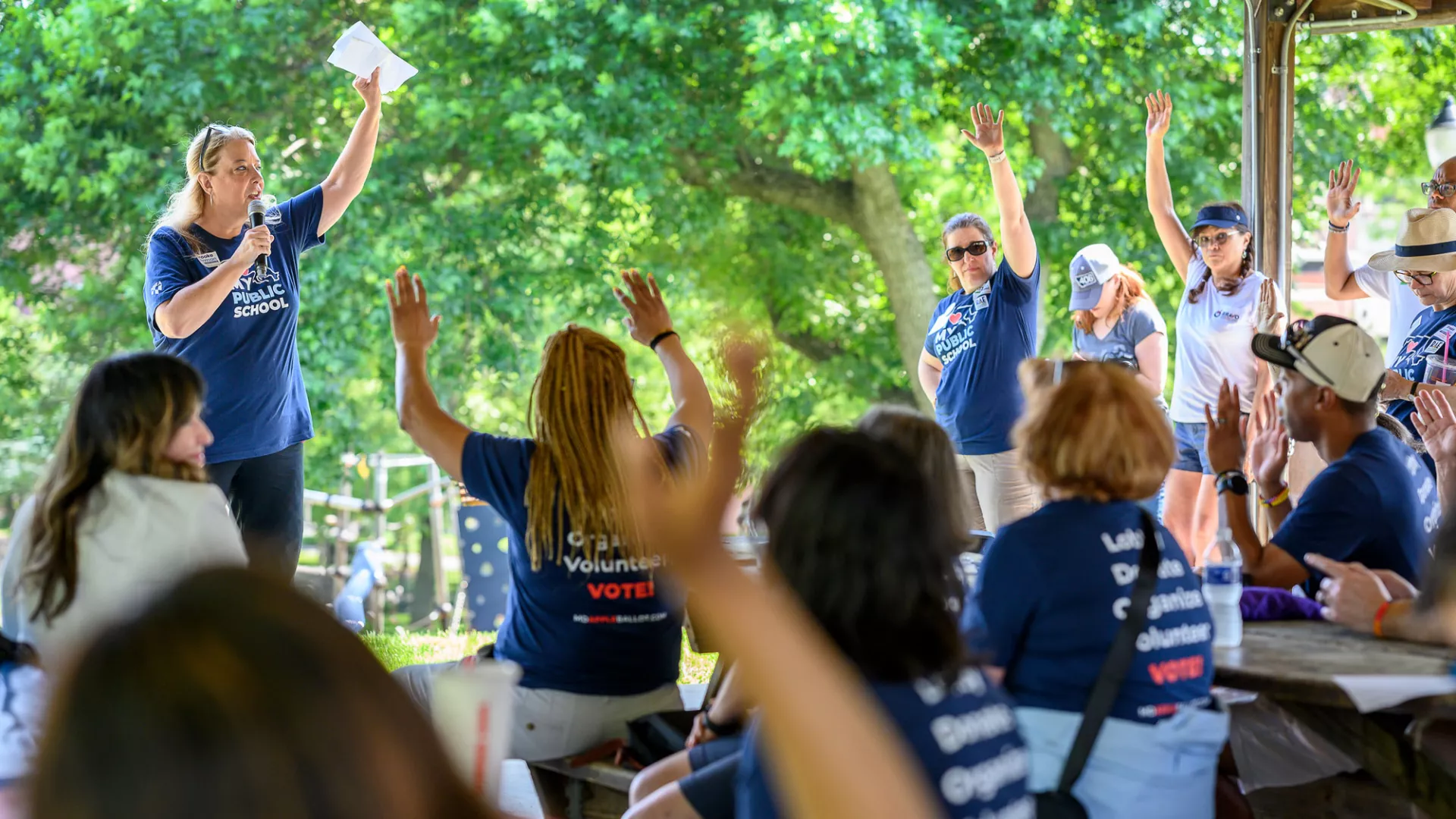Key Takeaways
Educators have strong First Amendment rights to engage in political activity on your own time and in your personal capacity.
But courts still balance your right to free speech against your school’s interests in controlling the speech.
You should avoid actions that could tip the balance in a school’s favor.
- First, you should make it clear that you are not speaking for your school or acting on its behalf.
- Second, you should make sure that the event relates to the public interest, and not a private matter at the school.
- Finally, you should avoid activity that is truly offensive and inflammatory. If you follow these rules, the balance will nearly always tip in your favor for political speech.
"Politicians make so many decisions that affect my classroom and the profession. I need to be involved so we elect people who are going to make those decisions in a way that is favorable toward public education, public school workers, and the students we serve.”
— Amy Harrison, special education teacher, North Carolina
This page is intended to provide general information. For specific advice, you should always contact your local union or attorney.
Speak Up For Students and Public Schools

